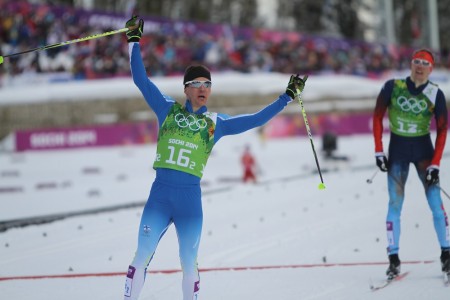
FasterSkier’s coverage is made possible through the generous support of Swix.
KRASNAYA POLYANA, Russia – The cross-country team sprint had been whittled down to men from three countries: Germany, Finland, and Russia.
As they skied around the final downhill corner, into the stadium, the only question left seemed to be who would get bronze, who would get silver, and who would get gold.
That is, until Sami Jauhojärvi, the Swedish anchor, drifted to his right, at the same time that Tim Tschanke, the German anchor, drifted to his left.
Their skis crossed, and Tscharnke spun around and crashed, leaving him down on the snow as Jauhojärvi and Nikita Kriukov, from the Russian team, went on to collect the gold and silver medals.
By the time Tscharnke got up, it was too late: Teodor Peterson had passed him, snatching the second lucky bronze of Sweden’s cross-country campaign at these Olympics.
The Germans trailed in in 7th place, nearly 45 seconds behind.
The result set off a wild celebration by Jauhojärvi and his teammate Iivo Niskanen at the finish, with Jauhojärvi raising his arms and screaming as he crossed the line.
But it also set off some grumbling by the Russians—Kriukov said he was also held up by the crash, and otherwise could have challenged for gold—and a formal protest from Germany, which the race jury rejected.
The Germans still had 48 hours to file an appeal, and it was unclear whether they had done so late Wednesday.
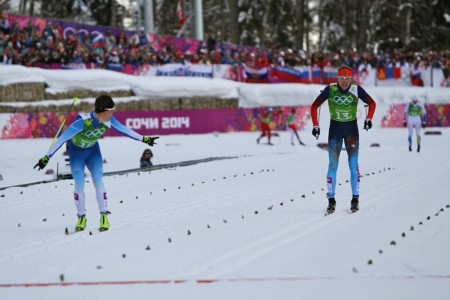
Bjoern Weisheit, the German team manager, said any objection would be only to get “justice,” rather than to elevate Tscharnke and his partner Hannes Dotzler to the medals, since the two finished in seventh place.
As the drama with the protest unfolded, Jauhojärvi and Niskanen were left to celebrate their gold.
The two form an interesting pair. Jauhojärvi is a compact 5’9” with dark hair, and at 32 he’s a veteran cross-country skier who is likely racing in the last Olympics of his career.
Niskanen is 22, blond, a lanky 6’2”, and was skiing in his first-ever games. He had a breakout result in the 15-kilometer individual race last week, in which he placed fourth, less than a second away from a bronze medal.
“We are, with Iivo, in a different position,” Jauhojärvi said afterwards. “He is just in the beginning of his career.”
The race stayed together until the fifth of sixth laps. (In the team sprint, each athlete took three trips around a 1.8-kilometer loop.)
On the fifth lap, Dotzler helped push the pace and broke apart the group, which up to that point had included eight different teams.
He tagged off to Tscharnke in the lead, with Finland and Russia not far behind, thanks to powerful legs from Niskanen and Maxim Vylegzhanin. Those three teams ended up breaking away from the rest of the pack, and headed up the last hill together.
The course at the Laura Cross-Country Ski Center was an especially tough one.
Team sprints are known for their unique demands on athletes’ speed and endurance, but at an interminable four minutes long, with two long climbs, the loop here brought a special kind of pain. The U.S. head coach, Chris Grover, described the course’s effects on Wednesday as “taking the best skiers and reducing their legs to jelly.”
“This is just about the most difficult track that I have ever been to,” Kriukov said.
The Finns, the Russians, and the Germans all had selected at least one skier for their teams Wednesday whose athletic background was more suited towards distance races than sprints.
For the Germans, that was Dotzler, who has never even made it past the preliminary round in a World Cup sprint, while Vylegzhanin and both Finnish men have strong track records in distance races.
Somewhat surprisingly, the leaders dropped the Norwegian team, which consisted of Petter Northug, a multiple Olympic medalist from 2010, and Ola Vigen Hattestad, who won the individual sprint here last week.
Hattestad was the one who lost contact, in the second-to-last leg, and told Norway’s national broadcaster, NRK, that “when they made the move, I had nothing to respond with.”
This time, Norway’s failure appeared to be all physical, following the country’s high-profile struggle with slow skis earlier this week.
Team manager Vidar Lofshus said that Hattestad reported no problems with his skis Wednesday.
“We should definitely have been on the podium in this one,” Lofshus said. “I am a little bit disappointed.”
For the Finns, and for Jauhojärvi especially, the medal drew out some deep emotions.
His last year-and-a-half had been difficult, with the unexpected death of his father last winter, followed by struggles with illness.
After an unrestrained, gleeful celebration as he crossed the line, then a flag-waving victory lap with Niskanen, Jauhojärvi lost his composure in the finish pen, breaking into tears as he slumped over a wall.
The medal was the first from the Olympics in Jauhojärvi’s long career.
“It means everything for him, I think,” said Reijo Jylhä, Jauhojärvi’s coach. “I’m crying.”
Niskanen simply said the medal was “unbelievable.”
“It has always been my dream since I grew up, and my dreams have come true,” he said.
For the Russians, the medal was the second in cross-country skiing at these Olympics, which should help ease the pressure on their athletes in the two remaining competitions—the 30- and 50-kilometer distance races next weekend.
Vylegzhanin and Kriukov both sounded pleased with the silver, but also a little irritated to miss out on a duel with Finland for the gold, after being slowed in the mishap with the Germans.
“Had we not had the crash that we did, we would have had a good fighting chance for a gold medal,” Kriukov said. “I worked my 90 percent. If not for the crash, I probably would have worked out all of my 100 percent.”
Sweden, meanwhile, ended up with its second gifted medal of the games, after a big pileup in the men’s individual sprint last week allowed Emil Jönsson to collect an improbable bronze.
Jönsson skied the first leg of Wednesday’s event, and said he and Peterson, his teammate, would have been satisfied with fourth place, knowing that they’d given a full effort.
Neither Swede expressed an opinion about who was at fault in Germany’s crash, but Jönsson noted that it came in a type of race that’s notoriously chaotic.
“I feel really sorry for them, but it’s also a sprint, and you have to stand up all the way to the finish line,” he said. “We are a little bit in shock, and a little bit happy to be number three.”
—Chelsea Little and Alex Matthews contributed reporting.
Nathaniel Herz
Nat Herz is an Alaska-based journalist who moonlights for FasterSkier as an occasional reporter and podcast host. He was FasterSkier's full-time reporter in 2010 and 2011.

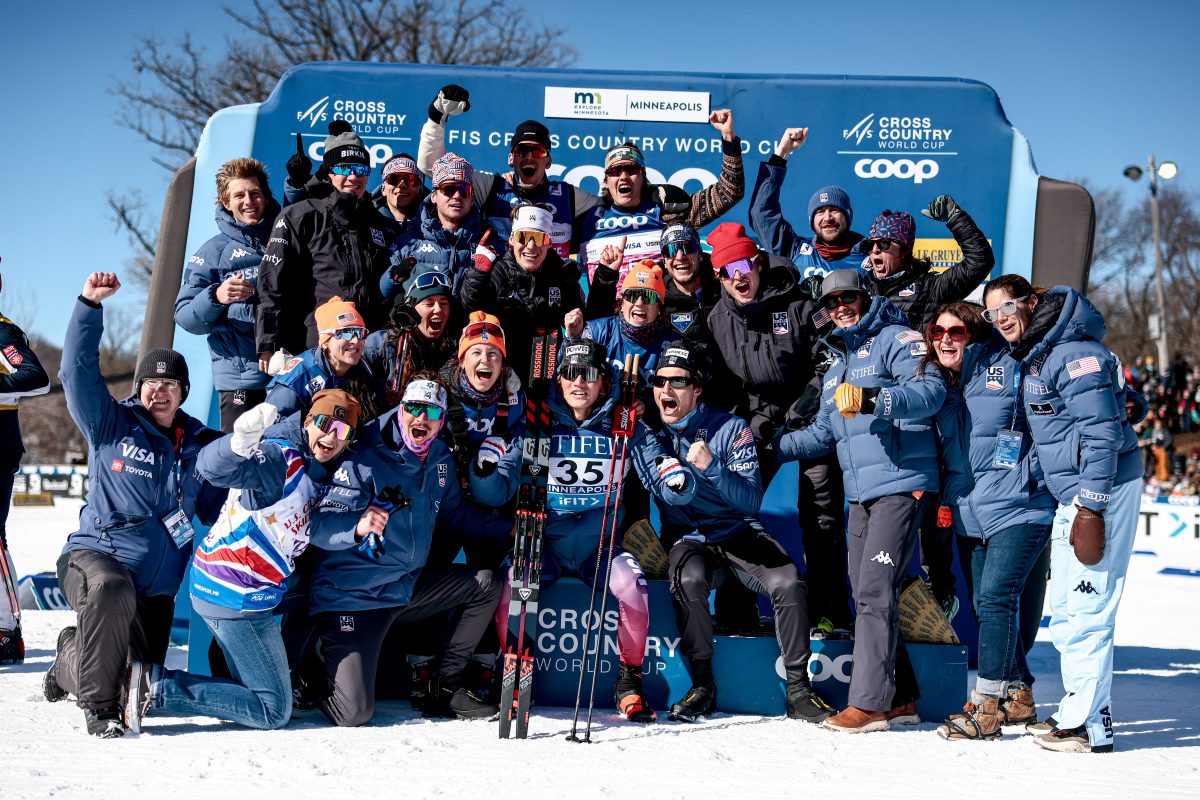
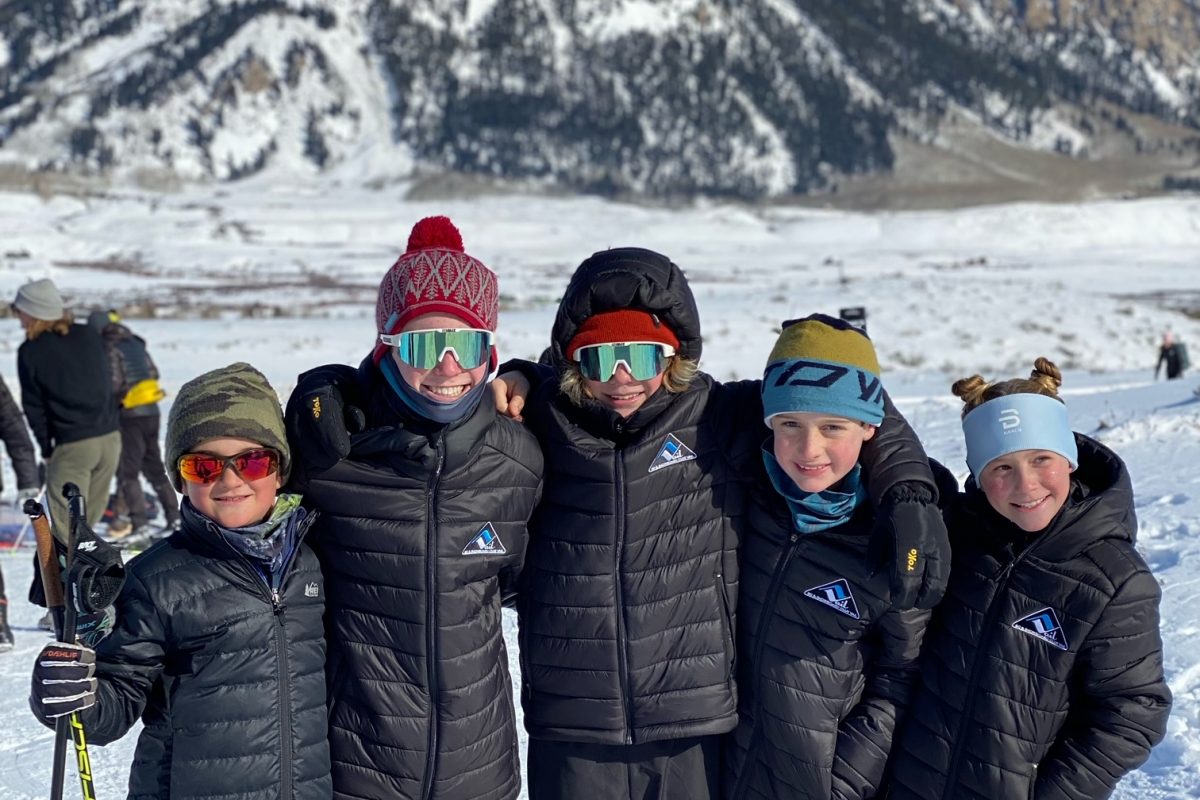
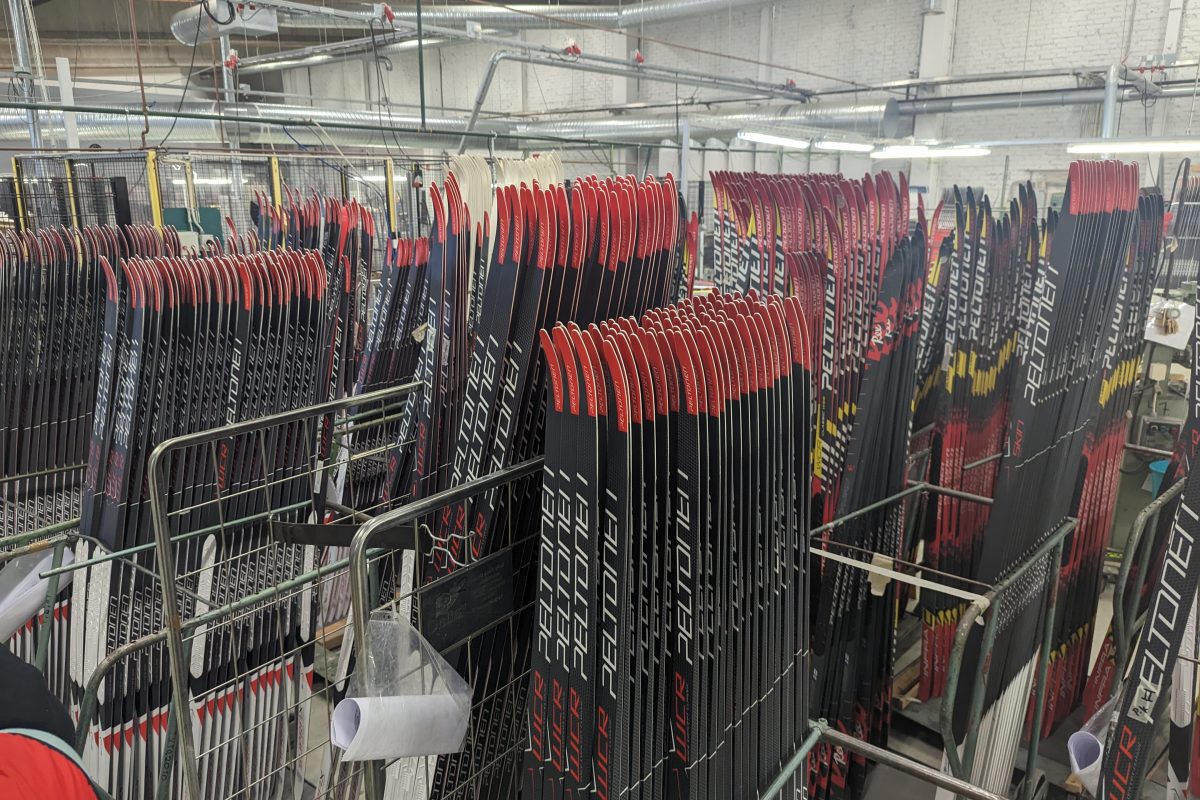
One comment
davord
February 20, 2014 at 12:17 am
Pity for Germany and even for Russia. Tscharnke should have gotten up. It would have been close with Sweden, but I think he would have held on. Bad practice to just lay there and accept defeat when you can still fight for a medal. Shame for Kriukov, the best classic sprinter and best finisher in the world, to have Jauhojarvi slip ahead of him in that way. No disrespect to Musti, but Kriukov beats him easily 10/10 had it not been for that incident. Considering he’s made monkeys out of guys like Northug, Brandsdal, Jonsson and Poltoranin, what could a (primarily) distance skier like Jauhojarvi possibly do to beat him in the sprint to the line? Some exciting racing at Laura! That 50km is gonna be something else, if the conditions go back to being warm and slushy!!